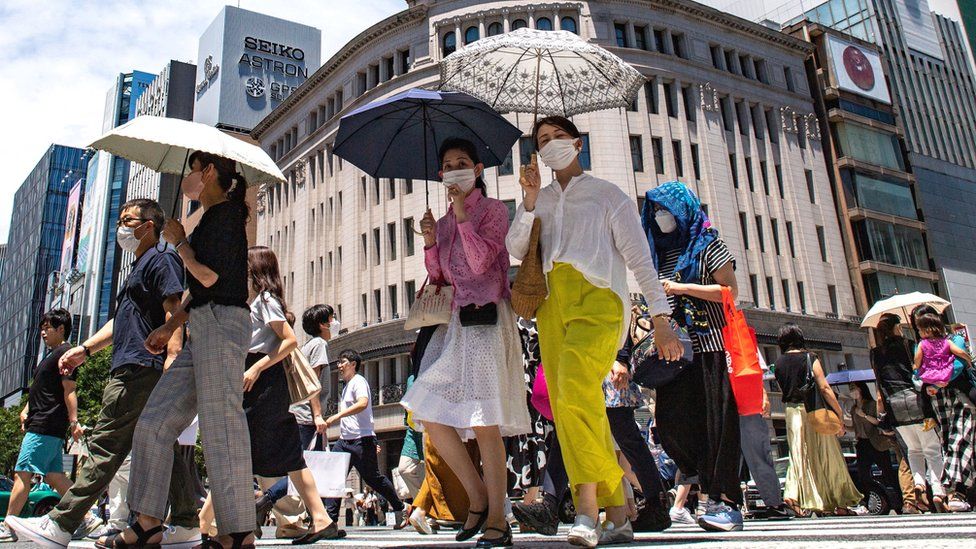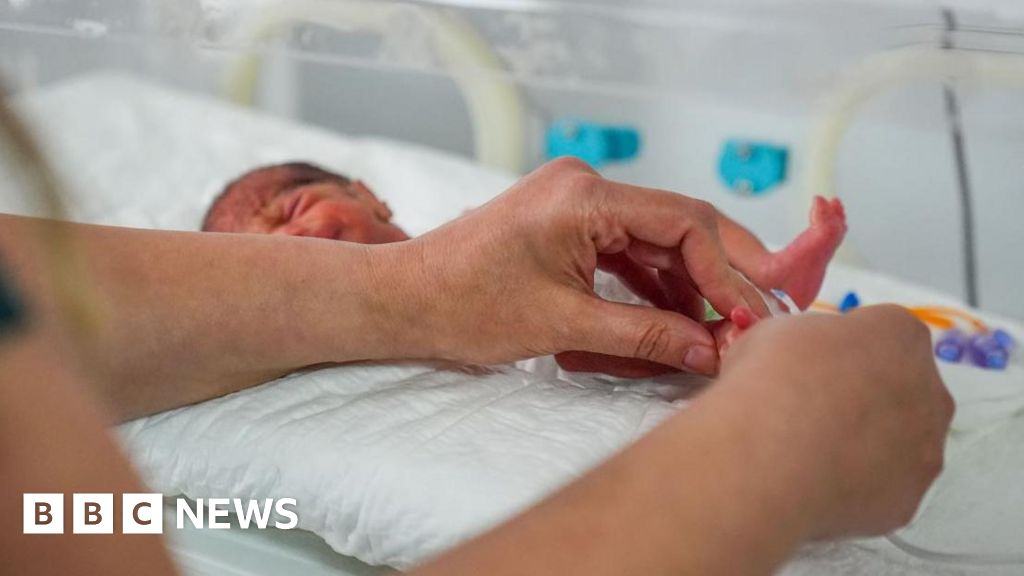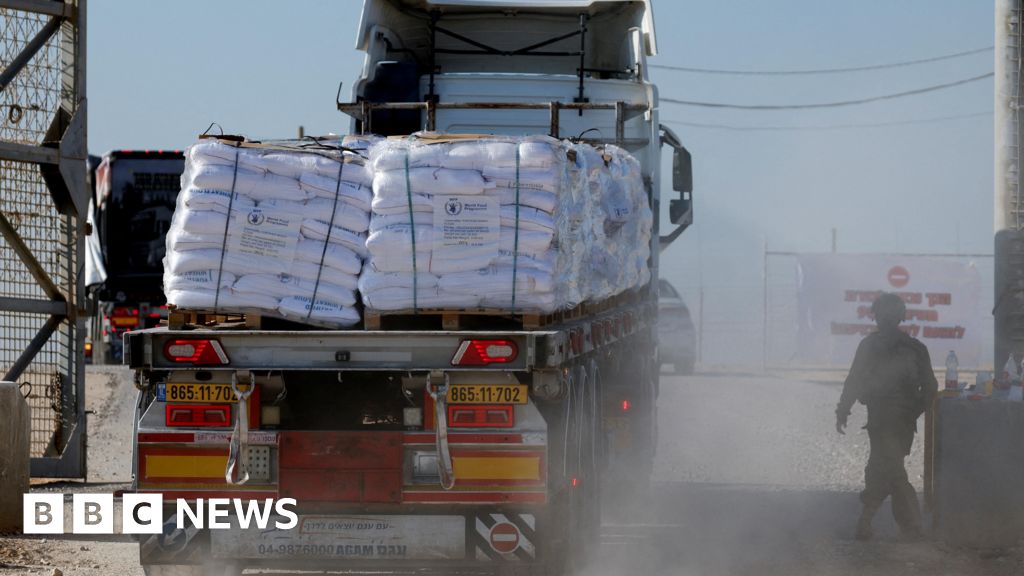ARTICLE AD BOX
 Image source, Getty Images
Image source, Getty Images
Japan's government has urged people in Tokyo and its surrounding area to use less electricity on Monday, as it warned that supplies will be strained as the country faces a heatwave.
The Ministry of Economy, Trade and Industry expects demand for power to be "severe" this afternoon local time.
It said people should switch off unnecessary lights but still use air conditioning to avoid heatstroke.
For weeks, officials have warned of a power crunch as temperatures rise.
In a statement on Sunday, the ministry said that excess generating capacity for electricity was expected to drop to 3.7% on Monday afternoon in Tokyo and eight surrounding prefectures. It views a buffer of 3% as necessary for stable power supply.
The government asked people to turn off unnecessary lights for three hours from 15:00 Tokyo time (07:00 BST) while "properly using air conditioning and hydrating during hot hours".
Although electricity providers are working to increase supply, the ministry said the situation was "unpredictable" as temperatures climb.
"If there is an increase in demand and sudden supply troubles, the reserve margin will fall below the minimum required of 3%," it said.
Japan's power supply has been tight since an earthquake in its northeastern region in March forced some nuclear power plants to suspend operations.
Officials have also closed several aging fossil fuel plants in an attempt to cut carbon dioxide emissions.
These issues, along with a surge in demand for electricity, have resulted in a power squeeze.
Earlier this month, the Japanese government called on households and companies to save as much electricity as possible during its summer season from July to September.
Over the weekend, the Japanese city of Isesaki, which is 85 kilometres northwest of Tokyo, recorded the highest temperature that the country has ever seen in June.
Meanwhile, Japanese public broadcaster NHK reported that 46 people in Tokyo had been taken to hospital for suspected heatstroke, as of Sunday afternoon.
It also said a 94-year-old man in the nearby Kawagoe city was suspected to have died from the condition.
The news comes after Australian officials urged households in New South Wales - a state which includes the country's biggest city Sydney - to switch off their lights in the face of an energy crisis. Restrictions on the Australian wholesale energy market were lifted late last week.
You may also be interested in:
Why are UK energy prices so high?

 2 years ago
19
2 years ago
19








 English (US)
English (US)